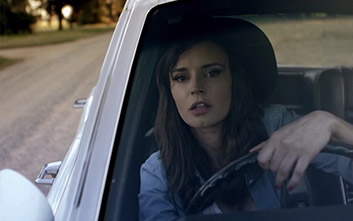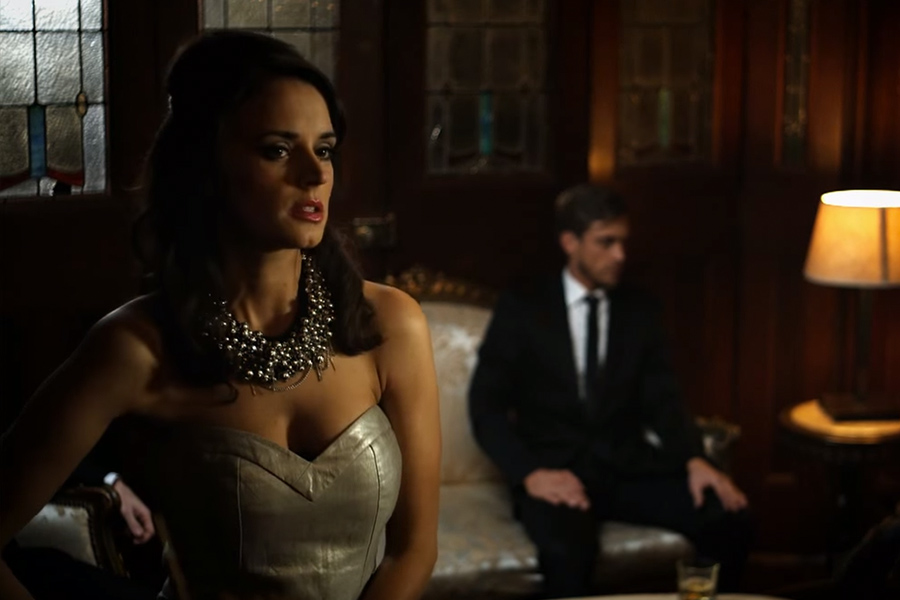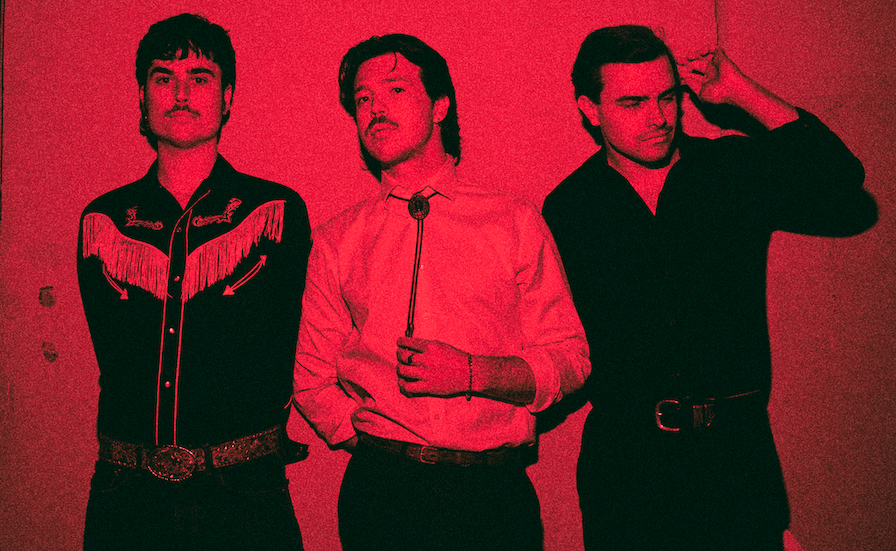The release of an eponymous album is an interesting move by any artist. Indicative of having reached an important moment in their careers, it’s a popular choice for debut releases.
Other musicians will wait until their careers are a little more established, you might even be looking at a ‘Best Of’ scenario. But mostly, a self-titled album is indicative of an artist asserting something very personal.
Melbourne’s Krista Polvere does just that with her latest album release, which is, as you may have guessed, self-titled. As her third full length album, Krista Polvere finds the artist at a point where both her career and her sense of self are held steady by her own hand.
On the surface these may seem like country songs, but edges of rock, pop and even cinematic scores show that Krista Polvere begs to differ.
Way out past the uncertain waters of new musicianship, Polvere’s genre-blending, melodic writing is lifted by a quiet sense of assurance.
Polvere sets the scene with the rolling rhythms of country roads, classic guitar and heart-on-sleeve lyrics. Progressing through her opening tracks, Father and Devil In Me, it’s obvious that her songwriting has very little to do with popular influence.
Eschewing trends and industry habits in favour of her own instincts, Polvere is often described as ‘sticking to her guns’. From a more personal perspective she explains this:
“Over my career there have been opportunities that I could have taken which may have led to commercial success but compromised the integrity of my sound, which I avoided… Being a woman in the music industry definitely is a double edged sword. You have to fight harder to be taken seriously and recognised for your talent alone”
“So all in all, ‘sticking to my guns‘ has meant that I can look back at my body of work and feel a sense of complete achievement knowing that everything I have put out into the world meant something to me and was not directed by anyone but me.”
Another label perhaps lazily attached to Polvere is Americana. It is true that she takes a lot from country music, and definitely country rock, which are still synonymous with America.
Touches of Sheryl Crow can be found in her soft throated vocals, set against electric guitar. But those dusty landscapes and small town narratives can also be found in Polvere’s native Australia.
Recorded in Virginia during a time when Polvere was immersing herself in the Southern States, this album throws Polvere’s own style against the Appalachian mountains to see what echoes back.
What follows is her own country style narrative woven through with rich threads of folk, rock, pop and steel strung Americana.
Past those opening tracks the terrain that Krista Polvere traverses starts to change subtly. Having previously released Shut Up & Ride, an energetic, rock tinged track, it’s a song that reverberates with steely guitar and wolf-cry vocals.
Dipping into real country on Rocking Horse with its shuffle, brush percussion and lyric opener “Oh Pa look at me now / Got me a big black car and a white picket house”, the record winds its way into the heart of Virginia.
Five tracks in, and you hit Tennessee, and a change of pace. Slower, lazier rhythms have less of the driving pace of the previous tracks. Reminiscent of Tennessee native Valerie June, who also dedicated a song to the state, this is no copycat track but rather a feeling that Polvere must have exposed the heart of something in the rolling percussion and finger picked guitar.
The title Songbird conjures up ideas of exactly what Polvere’s version is not. Rather than a bright ditty you might expect from The Whites, there is a darker, brooding feel to the song. Hefty guitar gives it substance, and slow melodies suggest night driving and city lights, along with the lyrics.
Taking on a more cinematic aspect in resonating strings and sustained melodies, Joe tells a story of love and loss, very much in the country style. But the deep emotion and dark instrumentation sees Polvere take it in a very different direction.
By now Krista Polvere travels a landscape that is both epic and lonelier. Introspective and pensive, Lonelier Than Yesterday brings together the strands of emotion that Polvere ties in through the record.
With the determined pace of her more rock influenced songs, there is still a longing, emotive feel that echoes the more brooding tracks.
The fact that Krista Polvere is shot through with palpable emotion is unsurprising. Working with producer and guitarist Bryan Elijah Wood, at the time of recording Wood was also Polvere’s lover.
An intense experience in more than one way, the pair worked “endless hours” to finish the album:
“We challenged one another and there was a lot of tension as I asked him to work harder… I would not be satisfied with a part so I asked him to do it again, as he did with me. There are no limits when you’re working with your lover, and it’s for this reason it really is a beautiful album.”
Polvere is not so immature as to overwhelm her writing with an immediate love story lifted from her own life. However, the echoes of that love come down through her music and her lyrics, and the atmosphere of the record.
She goes on to say “Personally, I don’t respect Bryan as a man in this world and never will again but what he contributed is to the album is unquestionable. His guitar playing is extraordinary and together we made a very unique record.”
So there is no happy ending to this one, but then, when is art built on happy endings?
With that in mind, the last song on the album is a duet entitled Echoes. Surprisingly beautiful, there is something of an unresolved tension in the melody and between the female and male vocals.
Whether or not hindsight is informing my view on this track, I can’t help but feel that Echoes is a swan song. The soundtrack to two lovers, burnt out and finished but not quite ended. A fitting end to this chapter of the story of Krista Polvere.




